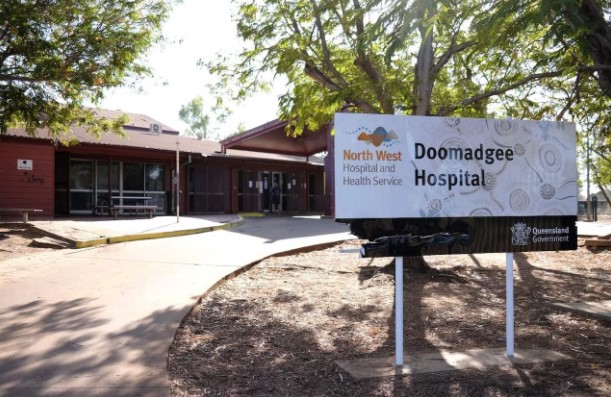A coroner investigating the deaths of three Indigenous women with rheumatic heart disease has found health systems in a remote Queensland community failed.
The deaths within 18 months of one another sparked an inquest into what would otherwise be considered natural cause deaths, coroner Nerida Wilson said in her findings handed down in Cairns on Friday.
The three women – Yvette Booth, referred to as Betty, Adele Sandy, known as Ms Sandy and Shakaya George, or Kaya – lived in Doomadgee, about 630km northwest of Mount Isa, which is home to about 1400 people.
Eighteen-year-old Betty died in September 2019, while Ms Sandy was 37 when she died in May 2020.
Both died at the Doomadgee Base Hospital, while Kaya died in September 2020 in the Queensland Children’s Hospital Brisbane at the age of 17.
They all had rheumatic heart disease (RHD), which is preventable and almost exclusively a disease of poverty and social disadvantage, Ms Wilson said in her findings.
Indigenous Queenslanders have a prevalence of acquiring RHD at a rate of 582 times higher than non-Indigenous people living in the same state.
The inquest was one of many investigations into the three deaths, with all finding deficiencies in record keeping and information sharing.
Ms Wilson said the tendency in highly charged inquiries was to look for individuals to blame.
“When one stands back in all three of these deaths there is no one individual,” she found.
“Simply put: Systems failed.”
They had failed the three women and health professionals and practitioners in Doomadgee, Ms Wilson said.
“A lack of the ability to share information and records denuded health professionals and clinicians of critical professional scaffolding essential for the conduct of professional health state sanctioned health services.”
Ms Wilson made 19 recommendations that included an expert working with the community and hospital services to define roles, identify gaps and streamline the management of RHD patients.
She called for a restorative expert to help repair the relationship between clinicians and health services, and a cultural leader to attempt to restore the trust and relationship between the community and healthcare providers in Doomadgee.
Ms Wilson found the people of Doomadgee do not have ready access to adequate washing machines, beds and quality produce.
“Local elder Mr Barry Walden told the inquest that many people are limited only to what is available in the community because they do not own a vehicle or cannot afford the petrol to drive five hours to the nearest ‘major’ centre Mount Isa for these significant purchases.”
She recommended government, in consultation with the community, consider building a laundromat and showers or approach an organisation to provide facilities.
Barriers to an unimpeded flow of medical records and health information across all health services and facilities in Doomadgee represented a serious systemic failure, Ms Wilson said.
Lack of basic health education and awareness, no formalised RHD screening program, tension between health services, mistrust of government and fly-in fly-out models of service delivery were among factors Ms Wilson found contributed to the deaths.
Ms Wilson said it was essential at an institutional level that racism in all forms was identified, measured and monitored.
She recommended Queensland Health, the Northwest Hospital and Health Service and Gidgee Healing, which provides primary health services, consider whether improvements could be made to clinical notes so as to avoid implicit negative cultural and racial connotations.
“The starting point for Doomadgee is healing,” Ms Wilson said.
“Significant time and care is needed for repair of relationships at all levels.”
State Health Minister Shannon Fentiman said the government will accept all the coroner’s recommendations and work with the Doomadgee community to respond appropriately.
“I welcome the coroner’s findings which will assist us to improve the prevention, early intervention and management of RHD.”
Chief First Nations health officer Haylene Grogan said the deaths are a tragic reminder of the ongoing inequities First Nations people face.
13YARN 13 92 76
Aboriginal Counselling Services 0410 539 905

